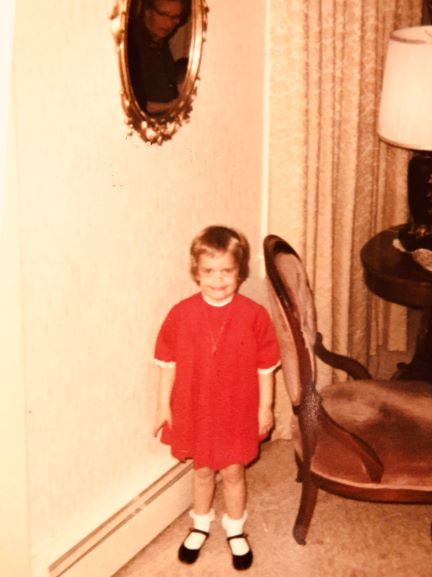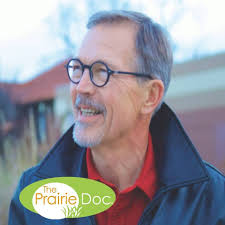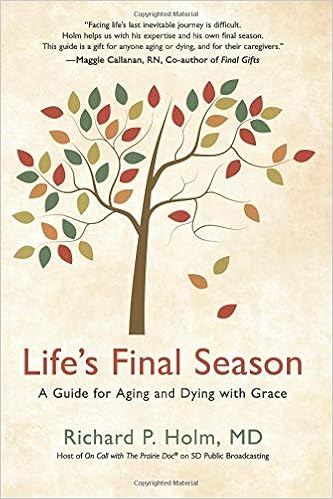 I chafe when my female Democrat friend’s shudder as November 3rd draws closer. The shiver begins at the base of their spines and travels upward until they squinch their eyes closed, viscerally opposed to my optimism, “I feel good about this, both Biden and the Senate.”
I chafe when my female Democrat friend’s shudder as November 3rd draws closer. The shiver begins at the base of their spines and travels upward until they squinch their eyes closed, viscerally opposed to my optimism, “I feel good about this, both Biden and the Senate.”
Then they squeeze out a whimpering, “It’s the PTSD, I just can’t… I cannot trust it.”
And I get it.
I didn’t anticipate a country of women weighed down by PTSD in the fall of 2016. As that Halloween approached, I played a game of How does one address a former President who’s now the First Man? Election night would be an early one, as Washington readied itself to transition to the first female Presidency. I was chipper in October 2016 until unwelcome notes of despair began to sing late on Halloween night.
Earlier that evening I slipped on the men’s trousers I found at Good Will. The waist didn’t taper, and the pants hung on my hips without a tug. The flaws of my middle-aged body disappeared, no worry of the middle section, or buttocks, or designers who didn’t predict that the skinny jean would have the opposite effect.
The white men’s dress shirt felt clean and crisp against my skin, and the tweed vest gave me a hint of waist. The blazer slid on; its silken lining like a feminine secret stashed in a man’s jacket.
The makeup was imprecise, white base, and smokey grays to evoke silent films, and black liner smudged around the lids to capture Charlie Chaplin’s forlorn innocence. Rather than tweezing eyebrows into submission, Chaplin’s face called for volume; more hair, not less, including a small, square patch of mustache.
I slid into barely worn black oxfords. They were the most comfortable shoes I had ever worn. Is it any wonder Cinderella lost that glass slipper?
I grabbed my bamboo cane and bowler hat and headed to the party.
Under a moonlit sky, in a barn in the Northwest Hills of Connecticut, I shimmied all night to the old-man boy band on a scratchy wooden floor. The oxfords never squeezed my toes, and I gave no thought to my imperfect face or aging body. It occurred to me, as I said goodnight… It’s a man’s world, baby!
Or it would be until Tuesday when The United States would elect its first female President.
I drove the windy backroads home, and sang along to my R&B playlist, turning up the volume when Aretha began, What you want, baby I got it…
When I reached the main drag, my eyes caught the bumper sticker on the souped-up truck in front of me. It read, Trump That Bitch
My Chaplin glow dimmed.
Three days later, by the soft glow of the television, on a night that remains surreal in memory, Florida and North Carolina went for Trump. It wasn’t quite midnight, but I knew the deal was done.
A day begun with confidence drained me incrementally as each swing state was called. I clicked off the TV and sunk into my pillow. Trump won, and the peacefulness I’d mastered over a lifetime of starts and stops began to discharge like the drip of an IV: plop, plop, plop.
I expended enormous energy debating, phone-banking, canvassing, and working the polls since Trump seized the Presidency. This relentless, chaotic presidential term has not been without sanguine moments. The 2018 midterm Congressional elections were a cold compress for the bruises of Trumpian outrageousness.
New energy rose in me as we celebrated the arrival of passionate young women who could stand toe to toe across from the pumped-up smugness of Jim Jordan, Matt Gaetz, and Doug Collins; the Republican version of fraternity row. The far-right frothed at the sight of Ocasio-Cortez, Pressley, Tlaib, and Omar climbing the steps of the Capital. Somewhere in the vast landscape of America, young woman leaned in, finally connecting to an institution that had eluded them.
Most of them put their activist energy behind Bernie Sanders or Elizabeth Warren. In its earliest iteration, the Democratic presidential race looked positively progressive. But, a funny thing happened on the way to the nomination. With southern African Americans leading the way, the Democratic party nominated a familiar somebody, the antithesis of the carnival barker who occupied the White House.
Sometime this fall, Joe Biden’s candidacy quelled my 2016 PTSD. The Democrats chose calm.
My traumatized peers still need a little cajoling.
I looked into the skittish eyes of Peg and offered, “Hush, can you hear what I hear?” I urged her to listen to the distant thunder of the Doc Martin soled feet of my gen-z daughter, Grace, and her friends as they run to cast early ballots in Colorado. After President Trump bullied through the first presidential debate, Grace watched a town hall where old Joe talked about climate change as an existential threat. My daughter noticed and called me to applaud his green energy focused infrastructure plan.
I offered another friend the elixir of whispers from a Republican woman I know who asked me if I watched the Amy Coney Barrett hearings. I did.
Conservative women, who might not like high taxes or stubbornly refuse to worry about climate change, do remember girls who skulked away to hide a pregnancy or put themselves in harm’s way to get illegal abortions. Roe v. Wade and the protections it offers matters to women. Several Republican women in my neighborhood have said a variation of this to me, “Ginsberg’s death was so sad. I’m not happy about this Supreme Court nomination being rushed. It doesn’t seem right.”
I know they mean a stacked Supreme Court is a bridge too far. They have daughters and granddaughter whom they love, and their whispers suggest this President doesn’t understand how many of them are lacing up their New Balance sneakers and sprinting to the ballot drop-off box outside their town hall. They’ve finally found their gumption, and while they might stay mum in front of their Republican husbands, the noise of the virtual voting levers being pulled for Biden/Harris calms me.
Any lingering effects of PTSD ungripped me during the Vice-Presidential debate. I wondered if the President could hear the march of women racing away from him. Was Trump resting or too hopped up on steroids as one last group of unsure ladies sprinted to get across the line? Did the three-inch heels and Frye boots make noise across the asphalt, or did Typhoid Donald pump his weakened fist while the sycophantic cigarette in a suit droned on?
the finish line.
Vice President Pence practiced creepily polite interruptions, redirections, and obfuscations while soft-shoeing condescension. It might work with Mother Pence, but not with Mamala, who pushed back several times, “I will not be lectured.” I could nearly feel a national communal female smile. Unless the President’s concoction of COVID medications rendered him entirely hallucinatory, I think he might have heard the final drumbeat of Ked’s, Manolo Blahnik’s, and Dave Madden’s beating a path to the Democratic tent. The Stampede didn’t begin that night, but the final stragglers crossed the finish line.
No worries, my friends who still tremble at the mention of a Biden lead in Wisconsin. It will be women who will draw up the final eviction notice for Donald J. Trump. I’d bet my healed nerves on it.











